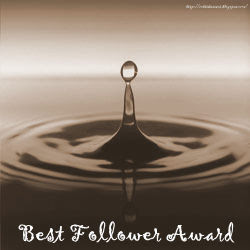The line between these two V-words is indeed very thin. Over the years and across the paradigms of culture and religion, both of these words have evolved far beyond imagination. For most people these words define what is accepted and what is frowned upon by the society they live in. While for others these words draw the religious boundaries. Just like everything else in life, the reference used for these terms also varies according to the context. This world has witnessed numerous amendments to the virtue and vice code as per the convenience of the society. The definitions have been manipulated numerous times by opportunists of various calibres, from famous politicians to religious teachers, communist leaders to infamous fundamentalist religious governing bodies. During the two decades of my life on this planet I was presented with different explanations for how virtue diverges from vice. Nevertheless I developed my own interpretations, which I shall impose upon no one but myself.
Virtue and vice are not exclusive for me. They are overlapping elements of a gigantic pantheon known as the ‘human mind’. They are counterpoising terms, see-sawing between which leads to the equilibrium of the inner self. Virtue, to me is not only moral excellence, but a thought or deed that leads to individual as well as collective peace and well being; for narcissistic excellence is of insignificant stature. Likewise vice does not implicate an immoral or depraved practice only, but a thought or an act that places the serenity and welfare of oneself and the civilization at jeopardy. Therefore it can be said that virtue and vice are the penumbra of each other, and what matters is which one of them is illuminated and which one forms the shadow. Initially my perception of these terms may appear rather altruistic, but with deeper insight it is prominent that I place ‘the individual’ at the focal point. However these presumptions are upheld by the Law of Chemistry, “The characteristic of a matter is determined by the properties of its composition elements.”
“Forgive those who sin against us”, preaches The Holy Bible and therefore it prevails as the foremost virtue. But to expect of humans to illustrate a divine virtue, is rather spurious and ambiguous. Vengeance is a sin but punishment is simply a form of self defence. To let unpunished who wrong against us, might provide an opportunity for atonement, on the other hand it might also turn out to be yet another chance to ‘strike back’. Moreover refraining from retaliation may convey a sign of being timid and feeble. I sincerely believe in the principle that, “Those who bear injustice in silence are no less responsible than the sinners themselves.” Therefore the bona fide virtue is not to forgive those who offense but to retaliate and defend oneself and the mankind against injustice and offense. Forgiveness might lead to greatness but it is the fortitude behind which cowardice is camouflaged.
Humility and honesty are other significant virtues nurtured inherently. But are these virtues instrumental in the ascent of life? Certainly, but for the adversaries only who efficiently abuse them. A humble and honest person is often preyed upon and victimized by colleagues be it in a professional set-up or a familial one. Being humble does not imply that one should underestimate the inherent competence and be subjected to oppression and humility. Honesty is a weapon which should be used with great comprehension. A prevarication for the welfare of all concerned parties and maintaining accord and harmony in the society has been termed as ‘White Lie’ or ‘Noble Lie’ by the great philosopher Plato. Having said all this, I do not advocate pride and dishonesty. I agree that these are indeed much worse vices than absolute humility and honesty.
To love unconditionally is also a rare virtue, at the same time it is a vice against oneself. Unselfish and unconditional love when reciprocated is like a sweet fragrance which enriches every life it touches. But when not mutual, it is like a parasitic symbiosis which leads to constant depletion of the mental and emotional health of both partners. It is said that love has no boundaries and it conquers all. But sometimes love poses as the major barrier and marks the circumference of the personal space of the loved ones. Here I do not speak of romantic love only, but also platonic and maternal love. High expectations, possessiveness and envy pose major barricades in the path of love, which demean one’s faith in the loved ones and render them bereaved and suffocated in the servitude of love itself.
Another virtue upon which great historic importance has been bestowed is chivalry. The courageous and valiant have been showered with respects throughout the history of mankind. Emperors, kings and knights have been granted magnanimous titles. But nerve without wit is a fatal combination. Gallantry paired with ingenious strategy leads to victory. In life too, it is essential to have the valiance and audacity to face the consequences of one’s decisions and actions. However one should also harbour the intelligence and wisdom to contemplate a strategy to play the game of life.
Gluttony, one of the seven sins, is merely a form of self-indulgence and merry making. Although strongly despised by several religious propaganda and considered an antagonist of piousness, it is only a means of recreation and joy. These petite joyous moments assemble together to form a library better than known as ‘life’. Such leisure times are opportunities to make new relationships, cherish old ones and celebrate the current ones. Unless such activities lead to a rowdy spree which perturbs the regular life of the other members of the community, gluttony is simply a form of enjoyment and amusement which should not predominate one’s life but be a good part of it.
Therefore, in my perception an honourable and virtuous man is not one who conquers his ambition by employing any means, but one who is considerate and strives to achieve his goals independently. A virtuous man is capable of taking failures and setbacks in a positive spirit and using them as a mirror reflecting his own mistakes and lapses, a man who values love and at the same time knows how to set it free as per requisition of life, a gallant and fearless man who never steps back from taking a plunge but also anticipates the depth of the plunge in advance, a noble man with the ability to put petty issues and grievances aside to appreciate the beauty and miracles of life and a man of character who is humble, honest and forgives a genuine mistake but stands up to the world when oppressed or abused.
My concepts of virtue and vice are not based on any religious or philosophical scriptures. They are inspired by life and the plethora of experiences in the realm of life. Although it may appear that I am an unconventional thinker, I consider myself realistic and contemporary, but not stereotypically idealistic. Maybe in this fairly new and reformed world “unconvention” is the new convention.













2 Opinions:
Holy Shit!!!
N u say I will do well with a degree in literature. I always knew u were a much better writer now I have got proof.
Moti tu ete dina hela kana karuthilu
Btw Holy shit seems to be a good juxtaposition of the conventional theories of Virtue and Vice
:P
I agree with the juxtaposition of Holy shit.. hehe!! I am glad that you liked it.. these are thoughts that come in my mind when I am listening to highly sleep inducing lectures :P
PS: This is how I keep myself awake in lectures :P
Post a Comment